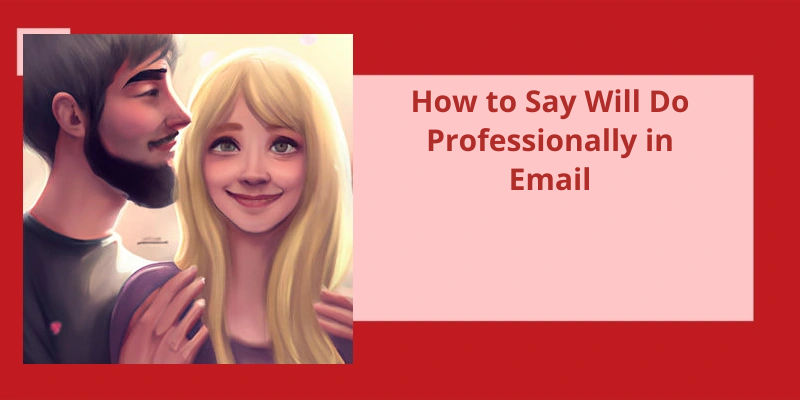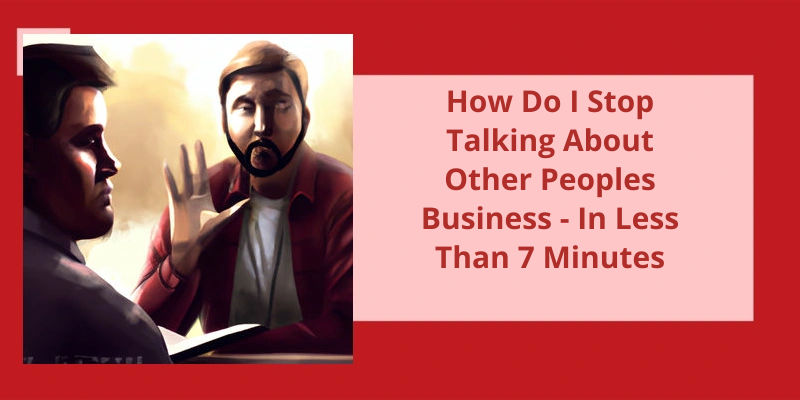As a human, it’s truly disheartening to witness the deterioration of a friendship that was once a source of joy and comfort. It's a difficult situation to be in when your best friend, the person you once confided in and shared countless memories with, starts behaving in ways that are hurtful and disrespectful towards you. It's natural to feel confused and upset when a friend who was once so supportive becomes hostile or dismissive towards you. While every friendship goes through ups and downs, dealing with a rude best friend can be especially painful. It's important to acknowledge your feelings and assess the situation, but also to approach it with compassion and understanding.
What to Do if Your Best Friend Is Being Rude?
Another important step is to communicate with your friend. Sometimes, people may not even realize that their behavior is rude or hurtful. By calmly and respectfully bringing up the issue, you can give your friend the chance to understand how their actions are affecting you and others.
In some cases, seeking outside help may be necessary. If your friends behavior is causing harm to you or others, it may be best to involve a trusted authority figure or professional to address the situation. This can be a difficult step to take, but it’s important to prioritize the safety and well-being of yourself and those around you.
It’s also important to remember that everyone makes mistakes, and it’s important to approach the situation with empathy and understanding. Nobody is perfect, and sometimes people act rudely due to external factors or personal struggles. By staying patient and compassionate, you can create a more positive environment and help your friend work through any underlying issues.
It’s all about balancing respect for yourself and others with a willingness to approach the situation with kindness and understanding. While dealing with a rude friend can be challenging, it’s also an opportunity to practice empathy and grow as a person. With patience, communication, and self-care, you can navigate the situation and maintain positive relationships with those around you.
How to Identify if Your Friend’s Behavior Is Intentionally Rude or Unintentional.
Observing your friend’s behavior patterns and examining their motives behind their actions can help you determine whether their behavior is intentional or unintentional. Pay attention to their body language and tone of voice, and try to communicate openly with them to understand their intentions.
It can be difficult to deal with a friend who isn’t treating you with the respect you deserve. However, responding with aggression or anger may only make things worse. Instead, taking a more compassionate approach can help the situation by possibly encouraging them to see the error of their ways. In this article, we’ll explore some strategies for handling disrespectful behavior from a friend.
How Do You Treat a Friend Who Disrespects You?
It’s important to remember that everyone has their own set of problems and issues that they may be dealing with, which can sometimes result in them lashing out or being disrespectful towards others. Therefore, the first step in dealing with a friend who disrespects you is to approach the situation with empathy and understanding. Try to understand what may be causing their behavior and approach them in a non-judgmental and compassionate way.
It’s also important to set clear boundaries with your friend. Let them know how their behavior is impacting you and that it needs to stop. You don’t have to be aggressive or confrontational, but assertive in stating your boundaries.
If your friend continues to be disrespectful despite your attempts to address the issue, it may be time to take a step back from the relationship. It’s not healthy to have friends who constantly put you down or make you feel bad about yourself. Sometimes it’s necessary to distance yourself from toxic relationships in order to protect your own well-being.
On the other hand, if your friend is willing to listen and make an effort to change their behavior, it’s important to acknowledge their efforts and show gratitude for their willingness to do better. Relationships take work and it’s important to foster positive communication and work together towards a healthier dynamic.
However, by approaching the situation with empathy, setting clear boundaries, and fostering positive communication, it can also be an opportunity to strengthen your relationship and grow together.
Coping Mechanisms: Dealing With Disrespectful Behavior Can Be Emotionally Challenging. Discussing Coping Mechanisms, Such as Self-Care Practices or Talking to a Trusted Confidant, Can Be Helpful in Managing Difficult Emotions.
- Practice healthy self-care habits, such as regular exercise and getting enough sleep.
- Take time for yourself to engage in activities that bring you joy and relaxation.
- Seek support from a trusted friend, family member, or professional therapist.
- Set boundaries with the person exhibiting disrespectful behavior and communicate your expectations clearly.
- Practice mindfulness and meditation to manage overwhelming emotions.
- Consider seeking out a support group or online community for individuals dealing with similar situations.
- Remember that it isn’t your responsibility to tolerate disrespect and prioritize your well-being above pleasing others.
Communicating effectively with friends is an essential part of maintaining healthy relationships. However, there may be times when you need to address behavior that’s less than respectful. While confrontation can be challenging, it’s important to address issues head-on to maintain your relationship and your own well-being. Here are some ways to communicate with your friend when they’re being rude.
How Do You Tell Your Best Friend That They Are Being Rude?
It can be difficult to tell your best friend that they’re being rude. You may be worried about damaging your friendship or hurting their feelings. However, it’s important to address this behavior as it can impact not only your relationship, but also your friends interactions with others. One way to start the conversation is to acknowledge their behavior by saying something like, “Ive noticed that you’ve been acting a bit rude lately.”. This can open the door for a discussion about what might be causing this behavior and how it can be changed.
Another approach is to be straightforward and direct when addressing their behavior. For example, you might say something like, “That’s really rude and theres no need for that.”. This allows you to address the behavior in the moment and in a straightforward manner. It’s important to avoid using accusatory language or attacking your friends character, as this can cause them to become defensive and less receptive to your feedback.
It’s also important to communicate your feelings and set boundaries around what you’ll and won’t tolerate. For example, you might say something like, “I feel disrespected when you speak to me like that. I need you to stop.”. By expressing your feelings in a calm and assertive manner, you can send the message that this behavior isn’t acceptable in your friendship.
If your friend continues to be rude despite your efforts to address their behavior, you may need to set more firm boundaries. For example, you might say something like, “I’ll not tolerate rudeness. I’m ending this conversation. We can continue when you’re ready to speak respectfully.”. This can be a difficult decision, but it’s important to prioritize your own emotional well-being and set boundaries that support your mental health.
Ultimately, it’s important to approach the conversation with an open mind and a willingness to listen to your friends perspective. While it’s important to address their behavior, it’s also important to do so in a way that promotes open communication and mutual respect. By having difficult conversations with your friend, you can strengthen your friendship and set a foundation for healthy communication in the future.
How to Identify if You Are Being Rude to Your Friend
If you’re concerned that you may be rude to a friend, try to put yourself in their shoes and consider how they might be feeling. Ask yourself if your words or actions may be hurtful or disrespectful. If you’re unsure, it’s always best to apologize and ask for feedback on how you can improve your behavior towards them.
It can be disheartening when your best friend seems to be acting out of character and being mean. However, it’s important to take a step back and assess the situation before reacting. In this article, we’ll explore several strategies that you can try to address the situation effectively and maintain your friendship. It’s important to keep in mind that friendships are complex, and not all conflicts can be resolved in the same way. By understanding the nuances of your particular situation, you can take steps to protect your own well-being and work towards a mutually beneficial outcome.
What Should You Do if Your Best Friend Is Being Mean?
Dealing with a best friend who’s behaving meanly can be a difficult and emotional experience. It’s important to understand the situation before taking any action. Sometimes, we can misinterpret our friends behavior as mean, when in fact, they could be going through something that’s causing them to act out of character. The best approach is to take time to objectively observe the situation and evaluate it as best as you possibly can.
Talking to someone else you trust can also be beneficial. This could be a mutual friend, parent, sibling, or therapist. A second opinion can offer insight into the situation and help you see things from a different perspective. However, avoid spreading gossip about your best friend. Instead, focus on how you feel and seek advice on how to handle the situation.
Resolving the conflict with your best friend might involve setting some boundaries or taking a break from each other for a while. It could also entail working through the issue together, and finding solutions that work for both parties. The key is to come up with an approach that helps to resolve the conflict without compromising your well-being or jeopardizing the friendship.
Sometimes, not talking about a hurtful situation can be the best course of action. This could be because your friend isn’t in the right headspace to hear your feedback, or because you feel that the situation isn’t worth discussing. In such cases, it might be better to take some time away from each other, and only resume communication when you’ve both had a chance to cool down and reflect.
At times, friendships go through rough patches, and it might be time to cut your losses. If your best friends behavior becomes toxic and starts to affect your mental health negatively, it may be time to let the friendship go. As painful as this may be, holding onto a friendship that’s causing you hurt can do more harm than good.
Remember not to paint all of your friends with the same brush. It’s important to acknowledge that each friendship is unique and that not all friendships will experience conflict. Avoid jumping to conclusions that all your friends will behave the same way as your best friend who’s behaving meanly. Instead, focus on building positive relationships with healthy boundaries to avoid any future conflicts.
Source: What do I do when my best friend’s friends are being mean …
Navigating a toxic friendship can be a difficult and uncomfortable task, but it’s crucial to approach the situation with empathy and understanding for your friend’s well-being. It’s essential to remind your friend of their inherent worth, support them in setting healthy boundaries, and encourage them to prioritize their own mental and emotional health. In this article, we’ll explore some effective ways to talk to your friend about a toxic friendship without causing further harm or strain on your relationship.
How Do You Talk to a Friend About a Toxic Friendship?
Talking to a friend about a toxic friendship can be tricky, but it’s an important conversation to have if you care about their wellbeing. Start by reminding them of their worth and the fact that they deserve a respectful, honest friendship. Many people in toxic relationships struggle with feelings of low self-worth and self-blame. By emphasizing your friends value, you can help them recognize that they don’t deserve to be treated poorly.
It’s also important to make it clear that abusive behavior is never acceptable. Whether it’s physical violence, emotional manipulation, or other forms of toxicity, it’s important to help your friend see that no one deserves to be treated that way. Society often blames victims of abuse for somehow “allowing” the behavior to happen, but it’s important to remember that the fault lies entirely with the abuser. Encourage your friend to view the situation this way and to avoid taking on any unnecessary guilt or shame.
It’s easy to fall into the trap of complaining about the other person, but this can be counterproductive. Instead, emphasize the benefits of positive friendships and the negative impact of toxic relationships. Help your friend see that they deserve healthy, supportive friendships that allow them to thrive.
Overall, this conversation requires empathy, patience, and tact. Your friend may not be immediately receptive or may need time to process the information youve shared. Be prepared to continue supporting them as they navigate this difficult situation. Ultimately, remember that this conversation stems from a place of caring and concern for your friends wellbeing. With the right approach, you can help them recognize their value and make positive changes in their life.
Conclusion
It’s never easy when a friendship experiences rough patches. Often times, we might be quick to jump to conclusions, blame ourselves, or even try to change who we’re to appease our friend. But the truth is, it isn’t our responsibility to make someone else be kind or treat us with respect. It’s important to remember that we deserve to be treated well and to have boundaries, even with those we care deeply about. It may take some difficult conversations, honesty, and even time apart to work through the issue of our friend's rudeness, but ultimately, it’s worth it to maintain healthy and fulfilling relationships.






